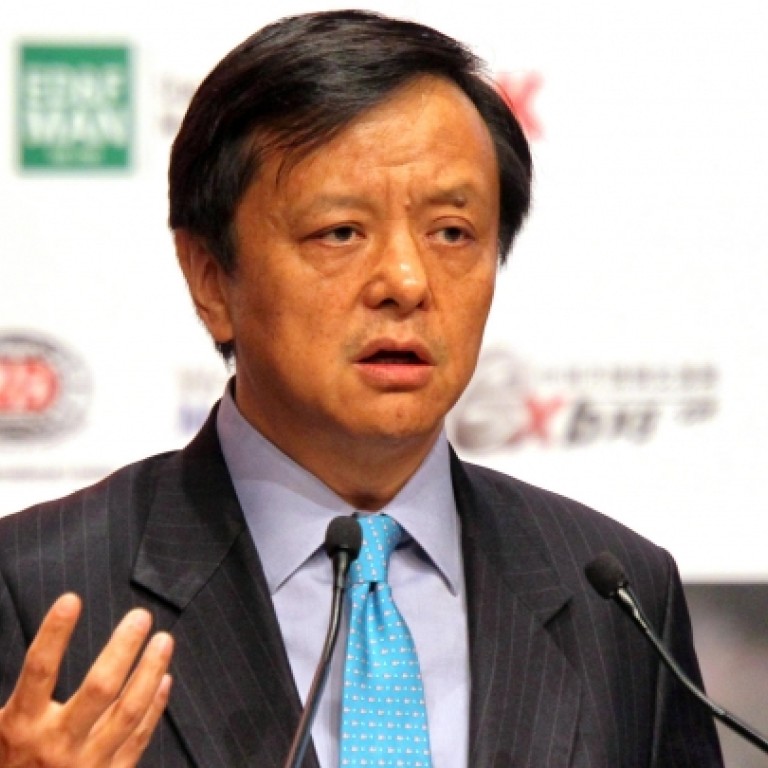
HKEx's bet on China exposure not so simple
Logic of Charles Li's LME deal strained by issues including yuan status and Shanghai's ambitions
It's no secret that gaining access to the mainland was the primary reason Hong Kong Exchanges and Clearing (HKEx) bought the London Metal Exchange, but the vision is a long way from reality.
As is usual with these deals, the theory looks sound. Putting together the venerable LME with a dynamic Asian company on China's doorstep looks like a perfect recipe to enter the world's largest metals market, which so far has been largely closed to foreign traders and investors.
"It sounds simple," was how Charles Li Xiaojia, the chief executive of HKEx, put it at the LME Week conference in Hong Kong on Tuesday.
Li was no doubt trying to add a bit of light relief to his address, but the scale of the challenge is enormous and its success will not only depend on how the HKEx goes about it, but also on factors well beyond the exchange's control.
The first steps outlined by Li include launching yuan-denominated, cash-settled metals contracts in Hong Kong, before an eventual move into other commodities and deliverable futures.
It sounds like a good start, but the issue is going to be how to get enough volume to make cash-settled contracts viable.
For metal producers, consumers and traders outside China the contracts would have to offer some kind of advantage over simply continuing to use the LME's deliverable futures. The HKEx contracts would offer the advantage of being settled in yuan, but this is a double-edged sword as long as the yuan isn't a fully convertible currency and Beijing imposes capital controls. In fact, the main problem for any plan to integrate China's metals market, or any other commodity market, into the global system is the issue of yuan convertibility.
While there are signs that the new Chinese leadership is open to relaxing capital controls, the likelihood is that this will be a protracted process characterised by a series of small changes over time.
For yuan-denominated commodity futures, a slow process of currency reform will make it harder to build up liquidity. This will especially be the case if China's reforms to its capital markets continue to exclude speculative investors, such as hedge funds.
While Beijing may include increased yuan convertibility in a package of reforms slated for October, it's likely that restrictions will remain on hedge funds, and would likely be the last controls lifted.
There is also the question as whether the Chinese authorities will be happy to allow HKEx a foothold in trading commodities on the mainland.
Hong Kong often bills itself as the gateway to China, not only for its physical proximity but also because of its Western-style capitalism and legal system. But it's also quite likely that the Chinese envisage Shanghai as the main financial centre when capital controls are relaxed.
While the LME Week event attracted speakers from mainland exchanges Dalian Commodity Exchange and Zhengzhou Commodity Exchange, the Shanghai Futures Exchange was notable by its absence. The Shanghai exchange already offers metals contracts and has warehouses as well, and it's well placed to capture a slice of the global metals market once China opens up trading to all comers.
Will there be room for more than one benchmark pricing and trading platform in China's metals market? Possibly, but it will be much harder for HKEx to succeed if Shanghai also chases the market, and does so with the tacit approval of the authorities in Beijing. The main advantage for the HKEx is being able to leverage off the LME's existing platform and reputation.
But replicating its success in Asia is far from a given, and while Hong Kong is a financial centre, commodities trade has generally been concentrated in fierce regional rival Singapore. The physical location of an exchange isn't so much of an issue. Convincing the trading community to move their business is a big challenge.
Li entertained the LME Week Asia dinner on Tuesday by dressing up in soccer strip and wearing a David Beckham mask. He said that after spending US$2.2 billion on buying the LME last year, he couldn't afford the services of the famous footballer.
Perhaps he should have worn a Tom Cruise mask, because what his company is trying to do appears to resemble Mission Impossible more than it does a football game.

